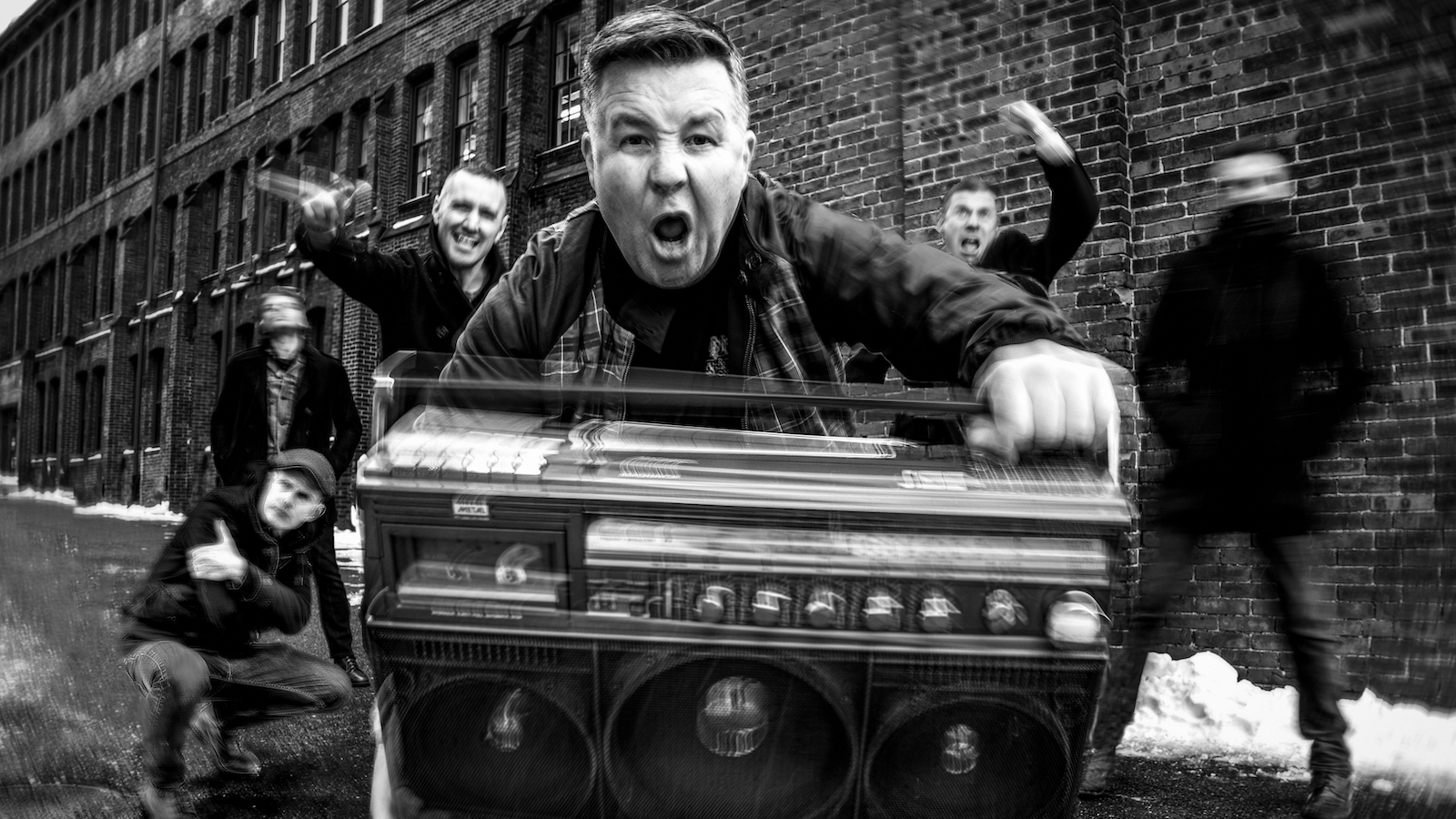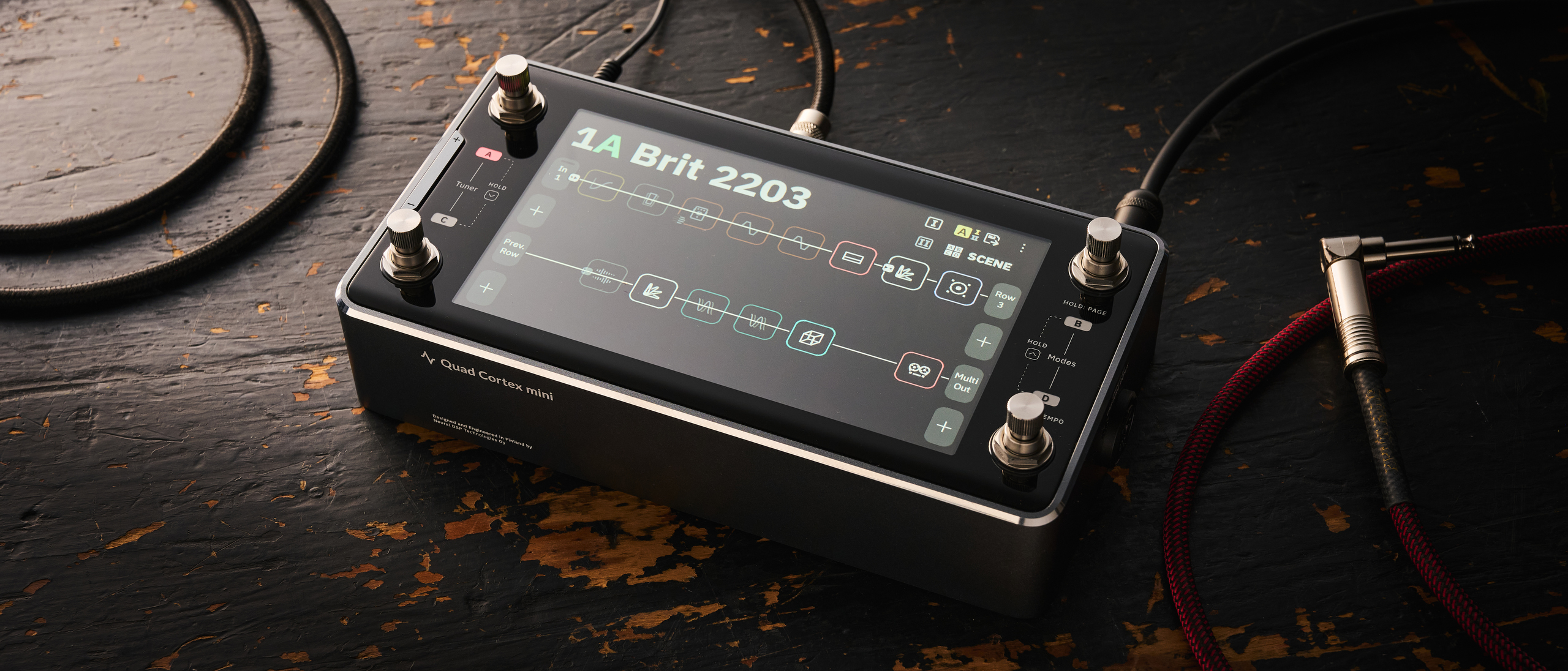Dropkick Murphys’ Ken Casey: “I’m having a blast being able to connect more with the audience”
It kind of goes without saying that we could all use a bit of positivity right now. Enter: the trailblazing punk-rockers in Dropkick Murphys

All the latest guitar news, interviews, lessons, reviews, deals and more, direct to your inbox!
You are now subscribed
Your newsletter sign-up was successful
If there are two things we could all use right now, it’s a tall beer and a turbulent mosh pit. Both go hand in hand with the Celtic punk cataclysm of the Dropkick Murphys, so it’s a damn great sight to see them back and more boisterous than ever with their monolithic tenth album, Turn Up That Dial.
It’s a markedly more cheerful effort from the Norfolk County sextet, for three distinct and calculated reasons: firstly, the band felt as though their last full-length, 2017’s 11 Short Stories Of Pain & Glory, was far too dismal – they needed to level out the field with some speaker-throttling party tunes; secondly, we’ve all just slogged through 18 months of a global pandemic – goddammit, we’ve earned that party; and thirdly, Don**d Tr**p was finally booted from the white house – an occasion we’re pretty sure legally requires partying.
The record also saw the band embrace a new creative dynamic, with lead vocalist Al Barr splitting the frontman role with former bassist Ken Casey. Casey passed the four-string duties over to longtime collaborator Kevin Rheault, after a lifesaving spinal surgery in 2018 left him with permanently numb fingers. But don’t worry, Casey lets us know he is far happier leaping around a stage without the fear of knocking someone’s teeth out with a fretboard.
Casey also told us all about how Turn Up That Dial came to be one of the Murphys’ most pivotal offerings to date, as you’ll read below…
Before we go any further, we have to address something extremely serious: has Mick Jones responded to the inflammatory accusation that he nicked your pudding?
He hasn’t, but we have concrete proof that he did as such, and we’ve rested our case already – the song’s been written, it’s out there, and we’ll see if he decides to defend himself.
So thematically speaking, this record is steeped in an overwhelming sense of positivity – which I think feels especially poignant given the time and the world it’s coming out in. Was that something you really wanted to take advantage of, to bring some light in a time of darkness?
100 percent. During the first lockdown, we really fell back in love with a lot of the music we listened to when we were younger. You don’t usually have time as an adult to spin full records like you used to – and man, putting on those headphones and closing your eyes, and having the music take you away from where we’ve been at these last few years… We really wanted to make an effort to be able to do the same for whoever listens to this album – to let people feel like the party is about to get started again, and that everything is going to be alright.
What are some of the bands you were particularly influenced by, and wanted to sort of tip your hat to on this record?
I mean obviously, the biggest influence on this band is our affinity for late-‘70s Britpunk – anything from The Clash to boybands like Cock Sparrer and The Business, Stiff Little Fingers… Everything from that era. We were also huge fans of American hardcore – but that heavier side of things didn’t influence this record as much as that catchy, anthemic British punk-rock – obviously mixed with the Celtic twist that we give everything. In terms of what we listened to most during the pandemic, it was a lot of that classic punk-rock stuff.
All the latest guitar news, interviews, lessons, reviews, deals and more, direct to your inbox!
As far as the recording process went, my understanding is that this is the first Dropkick album you didn’t play the bass on.
Correct – which is why the bass sounds so good [laughs]. Kevin [Rheault] took over as our touring bass player when I was injured – I had to have neck surgery and couldn’t play – and during my transition back to the stage, we just decided that he should stay in the group. Y’know, I was off the leash for the first time and I was able to get to the crowd.
When you’re playing these bigger stages and you have two of us on the mic, it makes the show a lot more enjoyable – Al [Barr, co-lead vocals] could be on one side while I’m on the other, one guy is up where the whole audience can see him while the other guy is down at the barricade with the fans – it seemed to give the show another dynamic. And Kevin is just an old friend; he’s worked for the band for 15 years, so we were like, “Man, we don’t want to take this gig away from you – and I’m having a blast being able to connect more with the audience…” So we just decided we were better as a band all around having Kevin on bass. Plus we don’t have to practise as much!
Is there anything unique he adds to the fold as a player?
I don’t think we really put that pressure on him – we kind of had everything good to go. I mean, there’s a little bit of his flavour on there. He’s filled in for me on other occasions, like when I’ve had to fly home for a funeral mid-tour – he’s filled in for everyone on guitar, he’s filled in on banjo… He’s like a savant, man, he can play everything! So y’know, he comes into the band like a band member, because he’s already been on the stage with us so many times over the years. It wasn’t like, “Hey, who’s the new guy!?” So whatever Kevin might have added of his own, by volition, we know it’s Dropkick Murphys. Because he gets us, y’know?
I was reading about how because of the social distancing requirements, you’d be recording with Ted [Hutt, producer] in shifts of two members at a time. What can you tell us about that process?
It’s a little different, but I mean, we’ve been at it for so long that we’re a good unit and we’re professionals. Y’know, it’s not like at this point, we’re drinking beers at the studio and cheering each other on – we’re there to get the work done. It’s not the ideal way to make a record, for sure, but it worked just fine. We made it work. We were using digital technology and sharing files around constantly, anyway – any day that someone would put something down, we’d hear it that night.
We have full trust in Ted, but we also don’t let someone just take the band into their own hands without us being a part of it. Ted is another guy who just gets us, and respects and enjoys that we’re not looking for a guy to come in and do the work for us. Y’know, with the size of this band alone, it’s a full-time job just getting everyone on the same page. I used to produce the records myself before Ted came along, and just from the bookkeeping side of it… Oh my God! It was like, “Okay, that’s a wrap… Oh wait, shit, we forgot the guitars on that song! The record is supposed to be mixed!” Just to keep track of everything is a shitshow! But Ted just has the right head for it. That shit used to do me in, y’know? So God bless him – it takes a special kind of man to keep us on track like he does!

Ellie Robinson is an Australian writer, editor and dog enthusiast with a keen ear for pop-rock and a keen tongue for actual Pop Rocks. Her bylines include music rag staples like NME, BLUNT, Mixdown and, of course, Australian Guitar (where she also serves as Editor-at-Large), but also less expected fare like TV Soap and Snowboarding Australia. Her go-to guitar is a Fender Player Tele, which, controversially, she only picked up after she'd joined the team at Australian Guitar. Before then, Ellie was a keyboardist – thankfully, the AG crew helped her see the light…
